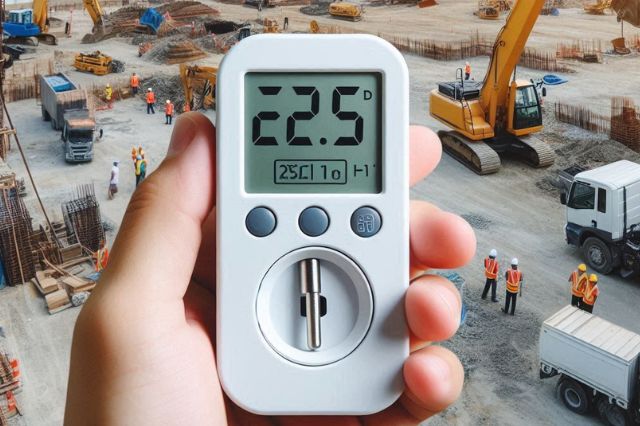Concrete Temperature Sensor: What it Can Do for Your Business
Concrete temperature sensors are devices that monitor and record the temperature of concrete during curing and hardening. For any business involved in concrete work, whether construction, civil engineering, or testing, using concrete temperature sensors can provide major benefits. The following guide provides an overview of what concrete temperature sensors are and what they can do for your business.
What Are Concrete Temperature Sensors?
Concrete temperature sensors contain thermocouples or RTDs (resistance temperature detectors) encased in a durable, concrete-tight casing. They can be placed at different depths and locations within a concrete mass. Most concrete sensors used today are wired, allowing temperature data to be monitored remotely via data loggers or handheld readers. Wireless concrete sensors are also available.
Each temperature sensor for concrete tracks and records the temperature of the concrete from the initial mixing through the curing and hardening processes. Temperature is a critical factor in concrete hydration and strength development. Monitoring it enables workers to ensure the concrete is curing properly and meeting strength expectations.
Benefits for Construction and Engineering Businesses
For construction companies and contractors involved in concrete work, using concrete temperature sensors provides the ability to ensure structural integrity and meet strength requirements. The temperature data verifies that curing and hardening are occurring properly so that the finished concrete has the expected load-bearing capacity and durability. This prevents flaws that could lead to cracks or premature failure.
In addition, the temperature profiles provide documentation that industry standards and project specifications are being met, avoiding potential issues later. This documentation protects the reputation of the business in delivering quality work. Monitoring temperatures also confirms that the heat of hydration does not get excessive, which could otherwise cause detrimental thermal cracking. The monitoring process prevents unsafe structures or necessary repairs later on.
Furthermore, the temperature data aids in determining the optimal time for stripping forms or removing shores without compromising the concrete’s strength development or damaging the structure. Properly cured, durable concrete enabled by temperature monitoring also decreases costs associated with rework, repairs, or replacements that would otherwise be incurred over a structure’s lifetime.
Finally, marketing the use of advanced monitoring technology distinguishes a business committed to best practices and quality work. This advanced monitoring technology appeals to prospective clients and provides a competitive advantage.
Applications for Testing Companies
For testing labs and facilities, concrete temperature sensors provide several key capabilities. The sensors allow for gathering accurate field data on curing and hydration rates under real-world conditions for research and development studies. They enable testing concrete mixes by evaluating the effects of different concrete mix designs, ingredients, and admixtures on curing to help optimize mixes.
Temperature monitoring also serves as verification when creating proprietary concrete products to validate performance and quality consistency. Additionally, data collected from job sites allows independent verification that temperatures meet curing requirements, adhere to codes, and satisfy project demands. This data collection provides accountability. Finally, the temperature data can identify anomalies that indicate problems occurring, allowing for root cause analysis while helping to prevent future failures.
With their many benefits, concrete temperature sensors are affordable investments that greatly improve business operations, quality control, safety, and customer satisfaction for both construction and testing uses. The temperature data they provide is invaluable for ensuring proper concrete curing and gaining valuable insight into concrete properties and performance.





